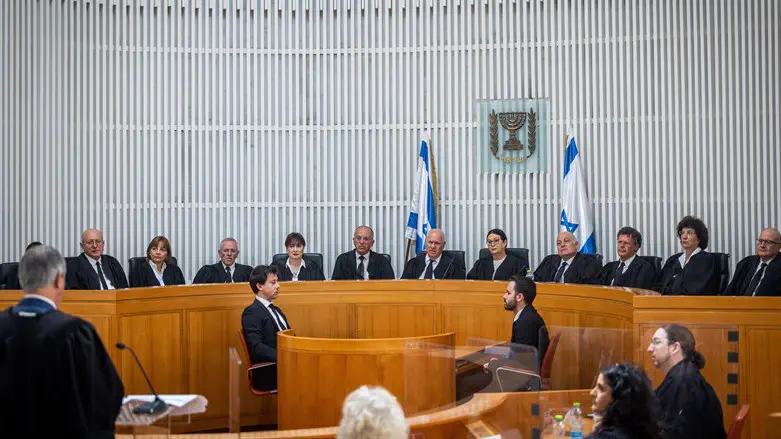
According to statistics compiled by the Academic Center for Law and Science, Israeli judges are referring less and less to Jewish law in their rulings as the years pass, a decline that has been observed now for decades and seems set to continue.
This trend has been especially marked since the departure of Justice Neal Hendel. Hendel served as deputy Supreme Court President and sat on the Supreme Court bench for over a decade before resigning last year.
The Center has been monitoring trends going back to the founding of the State in 1948, and its findings are published once a year, usually during the week when the Torah parshah of Mishpatim (Statutes) is read. It assesses compliance with and referral to Jewish law in legal rulings as well as references to the Tanach, Mishnah, Gemara, Talmudic commentaries, halachic rulings throughout the ages, and more. The Center's reports also note the nature of the case involved (criminal, civil, or administrative), specific details of the ruling, and the identity of the judge or judges.
Responding to this year's report, the Center's president, Professor Aviad Hacohen, said: "To our great distress, this is a trend that has been continuing for many long years now. Former Deputy Supreme Court President, Justice Menachem Elon, who recently passed away, was the last judge to consistently, systematically, and comprehensively interpret the law in the light of Jewish sources and incorporate them into his rulings. With his departure from the Supreme Court, around thirty years ago, a significant change occurred in this area."
Former Deputy Supreme Court President Elyakim Rubinstein also cited Jewish sources in hundreds of his rulings, more than any other Supreme Court judge, but unlike Justice Elon, these were usually short paragraphs that cited a multitude of sources on the topic in question, and did not include an extensive discussion of the topic. When he departed the bench some five years ago, use of Jewish sources in legal rulings again dropped substantially.
Two years ago, out of around ten thousand legal rulings handed down by the Supreme Court, Jewish sources were cited in only around 50. Last year, the number dropped by around half. Following the departure of Justice Neal Hendel, the influence of Jewish legal sources on Supreme Court rulings has been negligible and has made virtually no impact.
This is all the more striking given that the Supreme Court President, Justice Esther Hayut, recently employed an adviser specifically in order to locate texts in Jewish sources that are relevant to current rulings. Furthermore, in the last few years there have been multiple instances when the Supreme Court has found itself confronted with cases with no or scant legal precedent, such as the question of how to relate to an Alternate Prime Minister and the legality of a minister or prime minister serving while under indictment. The Supreme Court Justices have apparently consulted Jewish legal sources in all such instances; however, they have rarely cited those sources in their rulings.
